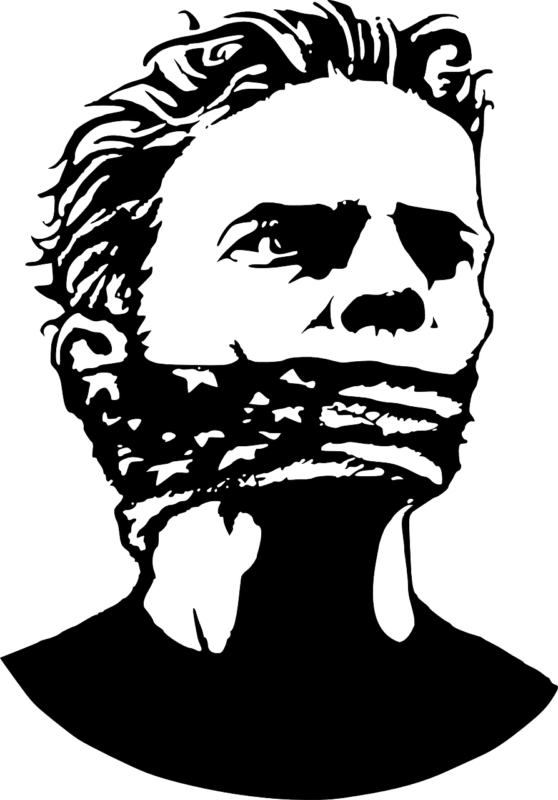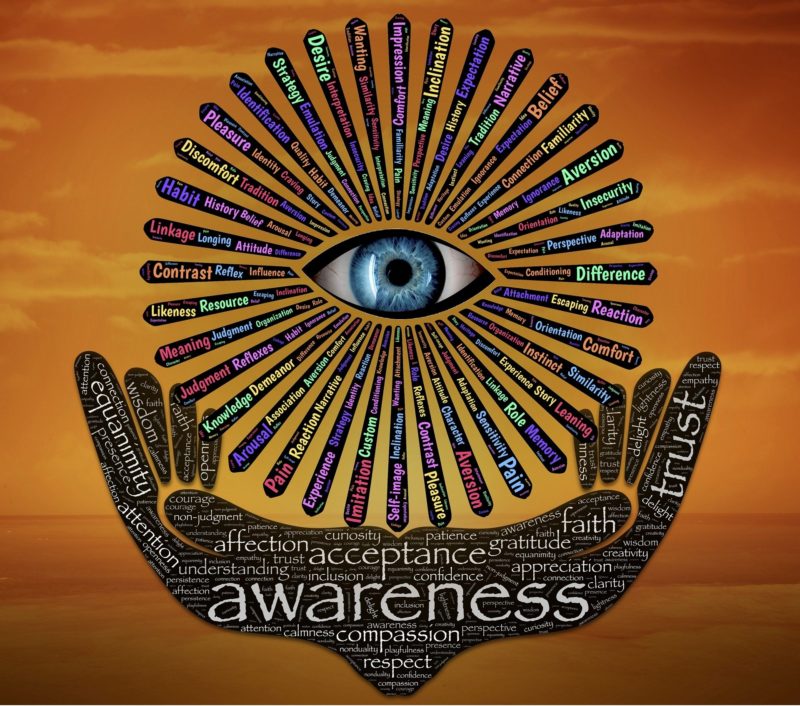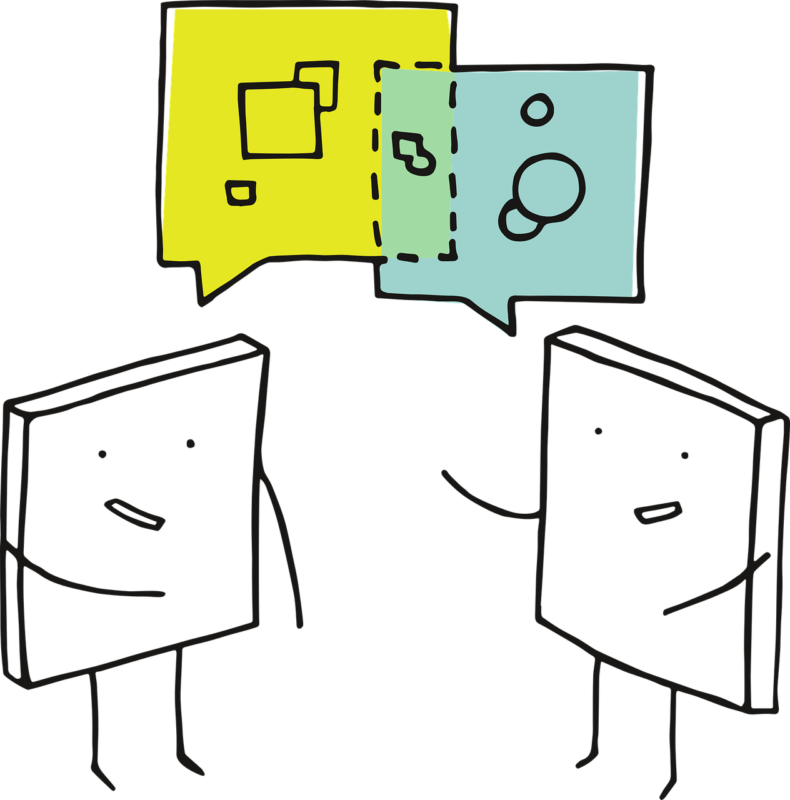“Give me the liberty to know, to utter, and to argue freely according to conscience, above all liberties.”
– John Milton, Areopagitica
Free speech, or the ability to freely speak your mind (especially in a public venue), has had a tumultuous ride throughout humanity’s history. Though there have been strong movements for the freedom of expression dating back to ancient Greece and Rome, in reality it was still very easy to get executed when speaking truth to power, or when going against the cultural or religious grain at the time (Socrates’ death sentence for “subversion of the youth” and impiety [in his case disbelief in the Gods of the state] being one well known example).
From being burned at the stake, excommunicated, imprisoned, fined or even sent to a labor camp, many of the people that comprised our societies throughout history have not been too keen on hearing what other people thought or believed. Though freedom of speech was often idealized in principle, that principle could be (and often was) very quickly swept aside when it contradicted what was commonly seen as correct, true or morally right in terms of the values, beliefs, scientific paradigms and religious perceptions of the time.
With the advent of the printing press, the ability to speak your mind freely skyrocketed, but so too did censorship, imposed primarily by the Church due to fears of heresy. In fact, the origins of most copyright law originate in the Catholic Church and a variety of governments’ attempt to control the flow of information through printing.
The ability to share and disseminate “illegal” information was now easier than before, but the penalties were still great and anonymity in sharing difficult. However, throughout the 20th century the extent and importance of free speech increased greatly – and ultimately came to a head with the advent and incredible spread of the Internet.
Now the information era had come – and with it the seeming impossibility to stop a torrent of information, views and perspectives being shared everywhere. Ideas that would have surely had you killed hundreds of years ago were now commonplace and easily accessible to all. Or so it seemed.
The Internet truly looked like one of those few rare inventions that could positively influence the world – giving free access to information for all, as well as uniting people from distant lands in the knowledge that they are not really as different as they may have previously thought. But as in many such cases, the human desire to control started rearing its ugly head.
Though the amount of misinformation can be rampant online, as well as the hate and fear that can circulate and find common-ground with others, creating echo-chambers of destructive thought, one wonders whether the true danger lies in allowing such information to spread unmitigated or whether the far greater threat comes from a reckless (and usually unsuccessful) desire to stomp it out of existence.
Censorship or Communication – Who or What Shall Be the Arbiter of Truth?

“All censorships exist to prevent anyone from challenging current conceptions and existing institutions. All progress is initiated by challenging current conceptions, and executed by supplanting existing institutions. Consequently, the first condition of progress is the removal of censorship.”
― George Bernard Shaw, Mrs. Warren’s Profession
There has been much debate about the harmful nature of spreading misinformation, as well as promoting fear and hate based ideologies, due to their potential corrupting influences on human minds and in turn, whole societies. This goes as far back to the ideas of Socrates, where in his ideal Republic certain ideas, imagery, poems and literature would be banned from the public arena, censored out of existence (described primarily in books 2 & 3), in order to promote a society that would strive towards what is “right”.
Of course the first great problem here is the question of what indeed is right, correct and positive for the flourishing of a healthy society. Who decides on what should be censored and indeed based on what do they decide?
What is seen as morally correct has changed greatly throughout history and still differs from culture to culture – where, for example, homosexuality has been and still is believed to be a great sin in many areas of the planet (and has throughout many eras of human history), nowadays it is viewed in a far more accepting manner, especially in Western society. A great divergence from certain ancient cultures to modern times can be seen in something such as pederasty, which was seen as normal, and even encouraged, in certain eras of ancient Greece and Rome. Now similar practices are viewed as mostly sick and illegal due to minors being seen as unable to meaningfully consent to sexual activity with adults.
Mainstream scientific views have also been wrong many times throughout our times and have only gradually updated themselves through new discoveries that slowly seeped into the academic and public arena. Thus nowadays, despite the discoveries in quantum mechanics that describe the world as a relation between the observer and the observed, as well as imply a non-deterministic reality, the old Newtonian world-view of pure objectivity and determinism is still very much rooted in most of society’s thinking. There are many more such examples that can be given throughout history. Let me simply mention that until 1803, when their reality was finally conceded, meteorites were seen as a myth and superstition. “Stones cannot fall from the sky” – so all reports of such phenomena were viewed as delusions. In 1772 the prestigious French Academy of Science appointed a committee to investigate such claims of “falling rocks” and concluded that they could not be real. Its conclusions were so convincing that museums all over Western Europe threw away their meteorite specimens.
If morality, beliefs and science are insufficient in creating a template for what should be discussed and what should be censored away, then what should that template even be? Perhaps, just perhaps the censorship of any ideas may not be the best solution after all? Perhaps all ideas should remain on the table, free to be debated at will, while more and better information should be given instead of that which is blatantly false and divisive to be forcibly removed from the public’s awareness.
Can One Stomp Out Dissent?

“To forbid us anything is to make us have a mind for it.”
― Montaigne: Essays
Conversely, does censorship even work in actually uprooting the ideas and beliefs of individuals and groups – or does it merely drive these ideas underground, into greater echo-chambers where further radicalization can occur?
An idea or belief can only survive as long as it is seen as logically correct, or if the emotions behind it are so strong as to keep it afloat (usually it is a bit of both, though feelings do seem to come over facts in modern discourse – sadly we are all to blame in this to some degree, even though many may claim otherwise, not realizing their own blind-spots).
Thus the only way to neutralize it is to dissolve the emotion behind it and/or refute its logical counter-part. Censorship, of course, does neither of the above. In fact, if an idea is censored and not refuted (especially when many have already taken it into their consciousness) and the emotional wounds behind it are not healed (if it is based on fear or anger), it is extremely likely to continue spreading in some way. Not only that, the desire for its believers to spread it will become far greater, and in their minds more justified, due to its censorship.
The mere move towards censoring an idea is something that can often make it more popular, in what can be described as the phenomenon of psychological reactance.
For example ― In 2003, Barbra Streisand sued photographer Kenneth Adelman for taking a photograph of her Malibu mansion, citing violation of privacy as a reason. The photograph of her estate, which had been downloaded a mere few times from Adelman’s website before that, became so popular as the result of the well-publicized lawsuit that it was downloaded near half-a-million times in the following month. The social phenomenon of information spreading even more widely after its attempted censorship has thus been dubbed The Streisand Effect.
But of course, this phenomenon is nothing new and can be seen throughout history.
Did the vast persecution of Christians since Roman times and a desire to stop their religious expression stop Christianity as a whole? Did the censorship of literature related to male homosexuality and birth control in the 19th century (especially in Britain) cause “gayness” to die off, or the movement for its inclusion in society to cease? Did the censoring of such works as Ulysses, by James Joyce, Lady Chatterley’s Lover, by DH Lawrence, and Howl, by Allen Ginsberg, remove these books out of existence or did they perchance become bestsellers?
Censorship, in terms of its desire to control is similar to war – it comes with a desire to stomp out the opposition in the hopes that it can and will allow itself to be eliminated by force. But if the war on terror and the one on drugs have given such poor results, how on Earth can a war on specific forms of information ever hope to be a success (putting aside the question whether success in such a “war” should even be hoped for)? Information is much like water, or air, but even subtler than that. It is carried through our consciousness, our minds, and without controlling the inner world and will of all, the flow of ideas can never be truly ceased.
Perhaps the greatest thing that can be done, especially in the case of fear and hate based ideologies, is the promotion of emotional healing and alternative arguments that may give people a different perspective and allow them to step into “a new story”, as one of my favourite social philosophers, Charles Eisenstein, would say.
The Parallels Between Meditation and Free Speech

“As above, so below, as within, so without, as the universe, so the soul…”
― Hermes Trismegistus
As someone that has practiced meditation for many years now, I cannot help but see some very significant parallels between the suppression of thoughts, ideas (including corresponding emotions) on the level of the individual – and the suppression of those very same aspects on the societal and global scale.
In my experience, whenever something is suppressed in the human mind, pushed into the subconscious, it desires to rise up again into consciousness, where it will be acknowledged and integrated back into the psyche. Through meditative practice, emotions and thoughts are allowed to arise, be felt, observed and thus integrated. It is awareness that is the great healer, the great catalyst for change – and by relegating pain back to the unconscious, by suppressing it, as well as our desires and needs, our joys and fears, trials and tribulations, we will ensure that mental health, inner peace and happiness will always be out of reach.
Throughout my life I have noticed that what applies to the individual very often also applies to the collective. For what else is the collective than a group of individuals, a collective consciousness, a hive-mind that in many ways can be said to be an organism in and of itself?
If collectively, the thoughts, emotions and perspectives of individuals are suppressed and denied, if their ideas are censored out of existence, if they are not allowed to speak freely, the consequences to the health of the society that these individuals comprise will become nothing short of disastrous.
If they are on the other hand allowed to come into the light of awareness of the collective organism of humanity, healing and integration can begin, most often through healthy discourse and debate. Even the most wretched and hateful belief-systems, even the ideas that seem to fly in the face of all logic and reason (though many times, when facing some of these ideas, we see that perhaps our own logic and reason needs an update as well) can and must be brought to the attention of mass consciousness, in order for integration and healing (in the case of great fear and hate) to occur.
It is futile to believe that ideologies based on a lack of sensibility and empathy will simply disappear if we ignore them. This is mirrored in the belief that many people still have, where their own inner shadow or the aspects of themselves they have deemed unfitting or unworthy will simply vanish into thin air if they are never acknowledged. This will simply not occur, for it is impossible for healing to happen without awareness, it is impossible for change to happen without the light of consciousness, it is impossible for understanding to come without acknowledgment.
Through repression and suppression of people’s thoughts, opinions and emotions those very aspects begin to come up in other areas of individual and collective life – for what is suppressed will eventually come up into consciousness, whether through a verbalized opinion (perhaps the least problematic of all), an action, or ultimately on the most extreme collective scale – through war.
Thus the only way forward is to turn on the light and let the darkness be dissolved in its presence. As within, so without, as above so below – and if I might add, as in the individual, so in the collective.
The Discourse Deciders of the Information Age

It is now that the entirety of online discourse has been guided towards and centralized in a few mega-platforms, owned by enormous corporations and spear-headed by out of touch and often morally destitute billionaires. Google, YouTube, Facebook, Twitter, Instagram, Reddit (some of these owned by the same company) are now the norm for searching, communicating, sharing, discussing and seeking out entertainment on the Web. On a myriad of devices, these websites are the default choice for many activities, often so integrated that they cannot even be removed (for example – on many new smartphones, various Google apps, as well as Facebook cannot be uninstalled), thus guiding especially new, and technically less savvy, users to being more inclined to use them.
Because everyone now uses these platforms, it is more likely that companies, political parties, or even individuals trying to speak their mind, will use them as well. Whether because of a desire to spread influence, sell a product or merely speak their mind, being on these platforms means more people will hear your voice and thus your reach will be far greater than elsewhere. Not to mention that most of these sites, through the immense profits they have accrued (mainly of course through the participation of the masses), have the ability to manage vast amounts of data and users, through expensive physical infrastructure and top software engineers, thus making their monopoly in the online world even fiercer. The idea that one can simply “create their own YouTube” is obviously an illusion, since the upkeep costs would be far beyond most people’s (or even companies’) reach.
These vast corporations and their respective platform hold an immense monopoly on Internet discourse – and through the power they hold, they have a massive say in what ideas, beliefs and perspectives, as well as which individuals discussing them are allowed in online discourse. And since online discourse now comprises the main aspect of mass human discussion and debate in general, these platforms have the power to shape and mold the minds of people, rivaled in their power perhaps only by television at the height of its influence.
Solutions to Combat Silencing

“Proclaim the truth and do not be silent through fear.”
―
So what should be done? I suggest the greatest antidote to censorship is speaking one’s mind fully and without fear. Only by being afraid of speaking up, only through fear of being “canceled” or viciously verbally assaulted (real possibilities, but still far lesser repercussions than those people faced in the past), can ideas and perspectives be silenced and allowed to fester in the individual and global subconscious.
If possible, try to be a good example when you do speak your mind. Educate yourself on the topics you are discussing, listen to other people and consider their opinions and perspectives, allow yourself to be aware of your emotional triggers, wounds and how they influence your thinking and reasoning.
If at all possible, consider engaging in a meditation practice – that alone will give you far greater clarity of mind, the ability to transcend emotional wounds that prevent insightful and unimpeded reasoning (including listening to others with an open-mind), as well as that crucial element that we should all be striving for in order to make our society better – compassion. In a way, clear and open communication naturally gives rise to compassion (and ultimately is a form of compassion), as you allow yourself to truly hear and know the other person’s perspective, thereby updating and clarifying your own.

It is clear, open communication and debate that we should all be striving for in order to make this society better, in order to dispel misinformation and hate, as well as to foster empathy for one another and our distinct perspectives that make life the cornucopia of diversity and uniqueness that it is.
Image attribution:
-Image 1 by 愚木混株 Cdd20 from Pixabay
-Image 2 by Gordon Johnson from Pixabay
-Image 3 by OpenClipart-Vectors from Pixabay
-Image 4 by John Hain from Pixabay
-Image 5 by Pete Linforth from Pixabay
-Image 6 by Dean Moriarty from Pixabay
-Image 7 by Manfred Steger from Pixabay







